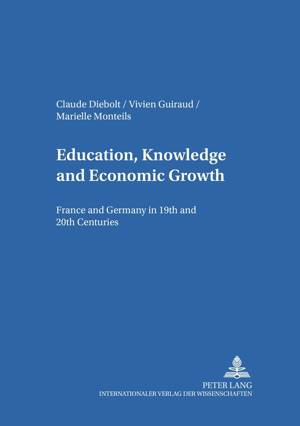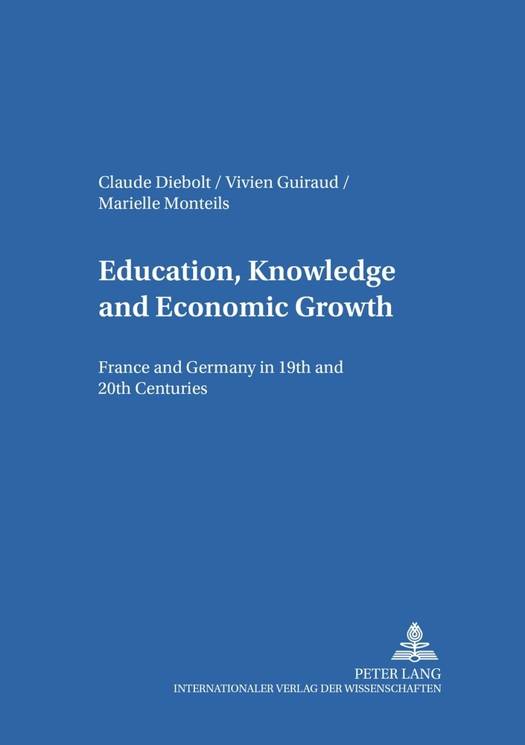
- Afhalen na 1 uur in een winkel met voorraad
- Gratis thuislevering in België vanaf € 30
- Ruim aanbod met 7 miljoen producten
- Afhalen na 1 uur in een winkel met voorraad
- Gratis thuislevering in België vanaf € 30
- Ruim aanbod met 7 miljoen producten
Zoeken
Education, Knowledge, and Economic Growth
France and Germany in the 19 Th and 20 Th Centuries
Claude Diebolt, Vivien Guiraud, Marielle Monteils
€ 51,95
+ 103 punten
Omschrijving
The debate concerning the role of knowledge in the economic growth process has gained considerable attention, both because of the importance of its implications in terms of economic policy and due to the number of theoretical and empirical analyses it has engendered. Thus, the argument according to which endogenous growth models explain long-term economic growth is often put forward. It is held that the production of knowledge induces self-maintained economic growth. However, in spite of numerous theoretical developments, attempts at empirical verification have run up against serious methodological difficulties. The first and most serious stumbling block is the way in which an intangible good of incommensurable size such as knowledge is evaluated. Moreover, most of the empirical studies carried out in recent years have taken the form of cross-national comparisons designed to analyse the role of different socio-economic factors in growth. So far, however, they have not succeeded in making conclusive statements of whether or not knowledge can induce long-term economic growth. Taking this state of research into consideration, the main objective of the present volume is to re-examine, by way of new techniques of quantitative analysis, theoretical models developed with a view to ascertaining the endogenous nature of economic growth induced by the production of knowledge.
Specificaties
Betrokkenen
- Auteur(s):
- Uitgeverij:
Inhoud
- Aantal bladzijden:
- 144
- Taal:
- Engels
- Reeks:
- Reeksnummer:
- nr. 12
Eigenschappen
- Productcode (EAN):
- 9783631378557
- Verschijningsdatum:
- 20/05/2003
- Uitvoering:
- Paperback
- Formaat:
- Trade paperback (VS)
- Afmetingen:
- 148 mm x 210 mm
- Gewicht:
- 199 g

Alleen bij Standaard Boekhandel
+ 103 punten op je klantenkaart van Standaard Boekhandel
Beoordelingen
We publiceren alleen reviews die voldoen aan de voorwaarden voor reviews. Bekijk onze voorwaarden voor reviews.











